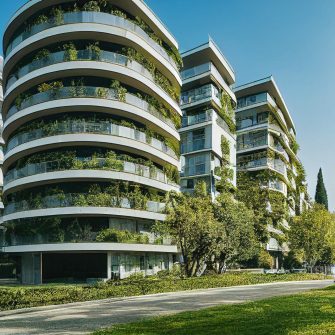Health environment

Description and aims
Globally and locally the environment we live in and where we create our health is challenged. This stream focuses on the health and equity impacts of, e.g. urban sprawl, infrastructure like transport and energy, walkable communities, greenspace, active transport, and healthcare facility and precinct design. The stream builds on a long tradition of separate work across CPHCE collaborations, from healthy urban planning policy, urban planning focussed HIAs to placemaking and locational disadvantage.
Key current research areas
Climate change and health
Increased incidence of extreme weather events – heat, floods, fire and storms - has made climate change a stark reality for many. The impact of climate change on human health is building, and protecting the health of all citizens in the face of our heating planet is urgent. This research area connects local climate mitigation and adaptation with local, regional, state and federal policy support. CHETRE is leading a number of initiatives like building capacity for governance in Western Sydney, and supporting action through the Western Sydney Health Alliance, Sweltering Cities and Heat related policy work.
Western Sydney Healthy Urban Planning
This program focuses on supporting authorities in shaping policies and programmes that facilitate the best futures for Western Sydney surrounding the new Airport and the Western Parkland City. CHETRE is engaged in the Western Sydney Health Alliance and the urban planning focussed work of Sydney South Western Local Health District and partners in local councils.
Waterloo Redevelopment
In Sydney LHD, HERDU is supporting the second stage of the health impact assessment (HIA) of the Waterloo estate redevelopment. The first stage focused on the impacts on tenants of the redevelopment announcement and the wait to be rehoused, with HERDU finalising the draft report and recommendations in 2019. The second stage, now in the initial scoping phase, is community led under the auspice of Counterpoint Community Services. Community-led HIA is an evidence-informed and practical way in which communities can contribute to decisions – moving beyond a simple reliance on consultation. It is a democratic and political process, rather than a technocratic one. HERDU is providing facilitation, HIA expertise and technical and logistical support.
Infrastructure, Health and Equity
infrastructure protects and promotes human wellbeing. Inevitable shifts in infrastructure provision, for instance, insulating homes, replacing polluting energy with renewables, greening public spaces, or prioritising active transport, have co-benefits for health outcomes (i.e. fewer chronic diseases, improved mental health, reduced complications from heat exposure) and climate change (i.e. fewer emissions, reduced heat). These technological solutions must prioritise vulnerable communities less likely to benefit and at risk of unintended consequences.
CHETRE is involved in several NHMRC funded initiatives with an infrastructure lens. One is an Ideas project investigating infrastructure policy from the perspective of power, priveledge and health equity. The other is a Canadian and Australia collaboration focussed on the implementation of local initiatives in cities to improve infrastructure for health and equity.
CHETRE also is responsible for the new Oxford University Journal, ‘Infrastructure and Health: Big Connections for Wellbeing’
The Healthy Urban Environments (HUE) Collaboratory
The Healthy Urban Environments (HUE) Collaboratory is a Clinical Academic Group funded by the MARIDULU BUDYARI GUMALL.
Sydney Partnership for Health, Education, Research and Enterprise (SPHERE) which brings together a coalition of universities and Local Health Districts to carry out policy-relevant research programmes and strategies to support Healthy Urban Planning. For example our report on Land Use Planning and Health Equity outcomes in Western Sydney
Government Submission
On 1st November 2023, Stream lead Patrick Harris lead and make a submission to the NSW Parliamentary Inquiry on '‘The Planning system and the impacts of climate change on the environment and communities’’
Key partners
Key partners in the stream and its research programmes are local communities, consumer groups and community advocates, health districts, local councils, and industry.
Stream lead
Dr Patrick Harris - email: patrick.harris@unsw.edu.au
Dr Chris Standen - email: c.standen@unsw.edu.au

